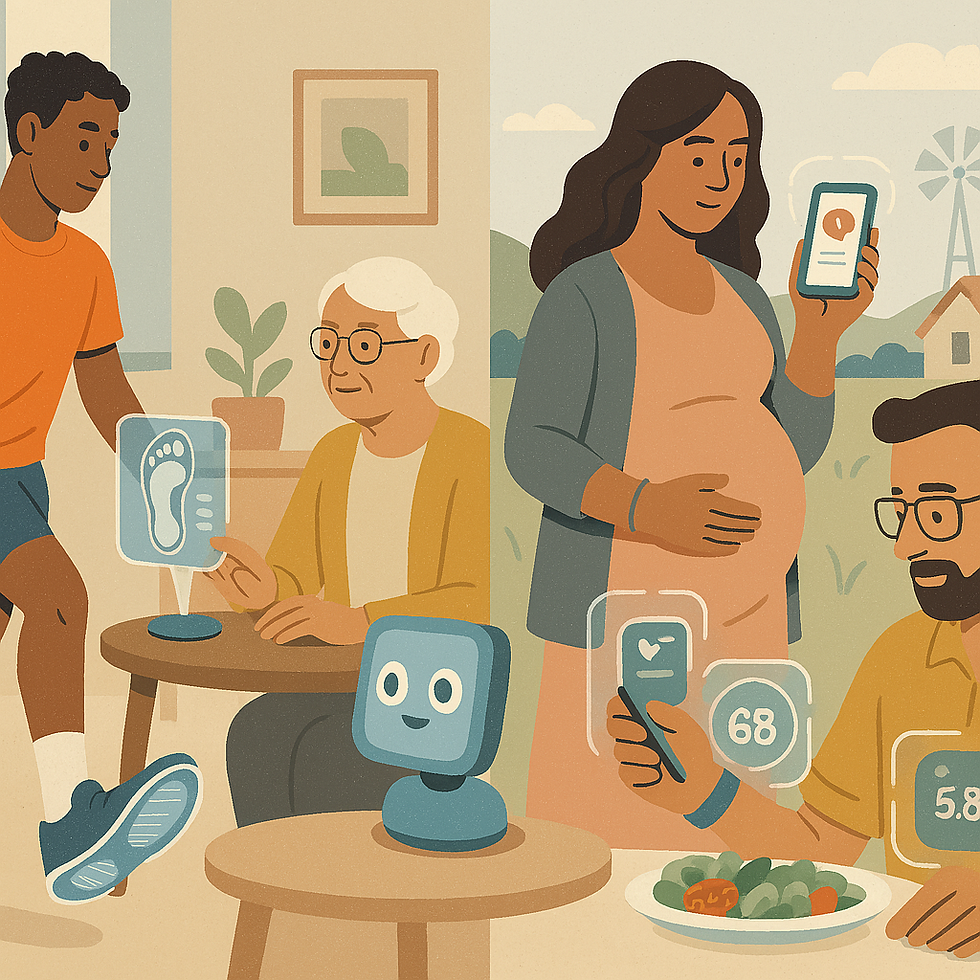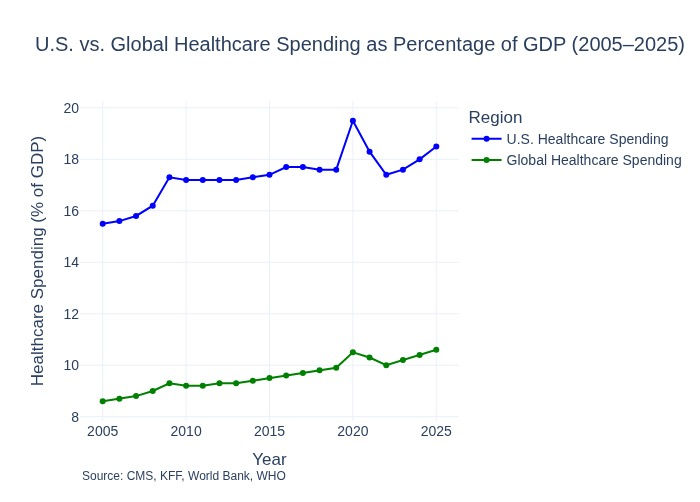Why We Must Reinvent Healthcare
- blairsheppard1
- Sep 2, 2025
- 3 min read

One person took me up on the challenge to describe why their chosen industry demands reinvention. So let’s take a closer look at care—specifically healthcare and mental health—to see why reinvention isn’t just necessary, it’s urgent. To be fair, much of the work for this blog was already done in a brilliant book by Paul Kusserow and David W. Johnson - The Coming Healthcare Revolution.
⸻
Healthcare: A System We Can No Longer Afford
The primary reason to reinvent healthcare is simple: we can’t afford it anymore.
• Aging populations are increasing demand for long-term and chronic care.
• Chronic diseases like diabetes and heart disease are rising globally.
• Medical technology, while transformative, is expensive and often inaccessible.
These pressures are driven by two major global trends: demography and technology. Add to that the growing impact of climate-related health issues and the cost of care in an increasingly fractured world, and the financial strain becomes unsustainable. In the United States, for example, unless we reinvent healthcare the costs will either bankrupt the country or force choices about who receives care. A trend that is already beginning to happen.

Can We Even Deliver Care in the Future?
Beyond affordability, there’s a deeper concern: can we deliver care at all?
Healthcare systems are facing critical workforce shortages, a result of aging populations and declining immigration. In Canada, rural hospitals are closing due to lack of staff. In the U.S. and UK, burnout is driving providers out of the profession. Globally, we face a shortfall of nearly 15 million healthcare workers.

Timeliness and Quality Are Declining
In Canada, over 60% of patients wait more than a month to see a specialist. Nearly 58% wait over two months for non-emergency surgery. These delays are not just inconvenient—they’re dangerous.

Meanwhile, perceived quality of care is stagnating. Despite rising spending, countries like the U.S. continue to lag behind in outcomes.
⸻
The Case for Reinvention: Technology’s Promise
While the challenges are daunting, there’s hope—technology offers a path forward.
Take mental healthcare as an example. AI isn’t yet on par with the best therapists, but it’s improving rapidly. More importantly, AI is always available. Unlike human therapists who may only offer an hour a week, AI can respond instantly—especially in moments of crisis.
Imagine someone considering self-harm. An AI agent could not only respond immediately but, with the right diagnostics, anticipate the need and initiate a conversation. As AI quality improves, its availability advantage will become transformative.
From Reactive to Proactive: The Future of Personalized Healthcare
Imagine extending the logic of AI-driven mental health support to broader healthcare, powered by advanced diagnostics, wearable sensors, home-based solutions and preventative treatments such as Ozempic. The result is a personalized health companion—always present, always learning, and always adapting to your needs.
This agent doesn’t just react to illness—it helps prevent it. It monitors your health continuously, detects issues early when treatments are simpler and more affordable, and guides you through care decisions tailored to your lifestyle.
Consider these possibilities:
• A high school athlete wears smart insoles that detect overuse of one leg, preventing future knee damage with targeted exercises and real-time feedback.
• A person with early signs of cancer or heart disease is nudged to get screened before symptoms escalate, improving outcomes and reducing costs.
• A diabetic patient receives daily nudges to adjust diet and activity based on glucose trends, preventing complications and avoiding emergency care.
• An elderly adult living alone has a 24/7 AI companion that checks vitals, reminds them to take medications, and offers meaningful conversation—reducing isolation and improving adherence.
• A pregnant woman in a remote area receives personalized alerts about nutrition, fetal development, and when to seek care, bridging gaps in maternal health access.
These aren’t futuristic fantasies—they’re emerging realities. And they promise a shift from reactive, fragmented care to proactive, personalized, and deeply human-centered healthcare.
⸻
Conclusion: Reinvention Is a Moral Imperative
We are spending more, waiting longer, and burning out our caregivers. The system is strained beyond its limits. But with thoughtful reinvention—driven by technology, redesigned care models, and smarter workforce strategies—we can build a future where care is affordable, accessible, and effective.
The time to act is now.




Blair,
your framing of healthcare reinvention is powerful in its clarity – moving from episodic to continuous care, from illness to well-being, from facilities to community, from constrained staff to expanded capacity, and from expensive to affordable.
What your post also makes clear is how much larger this conversation really is. It almost deserves a mind map to capture the interconnections: food systems shaping what we eat, education building health literacy, communities providing safety and belonging, even the way people search for meaning in their lives. Each of these influences whether health is something preserved or lost.
One image that comes to mind is a child born healthy in a society that provides nourishing food, safe surroundings, fair treatment, and…